We discuss the shocking truth about the food combining diet for weight loss, bloating & IBS, along with some food combining strategies that are ACTUALLY good for you.
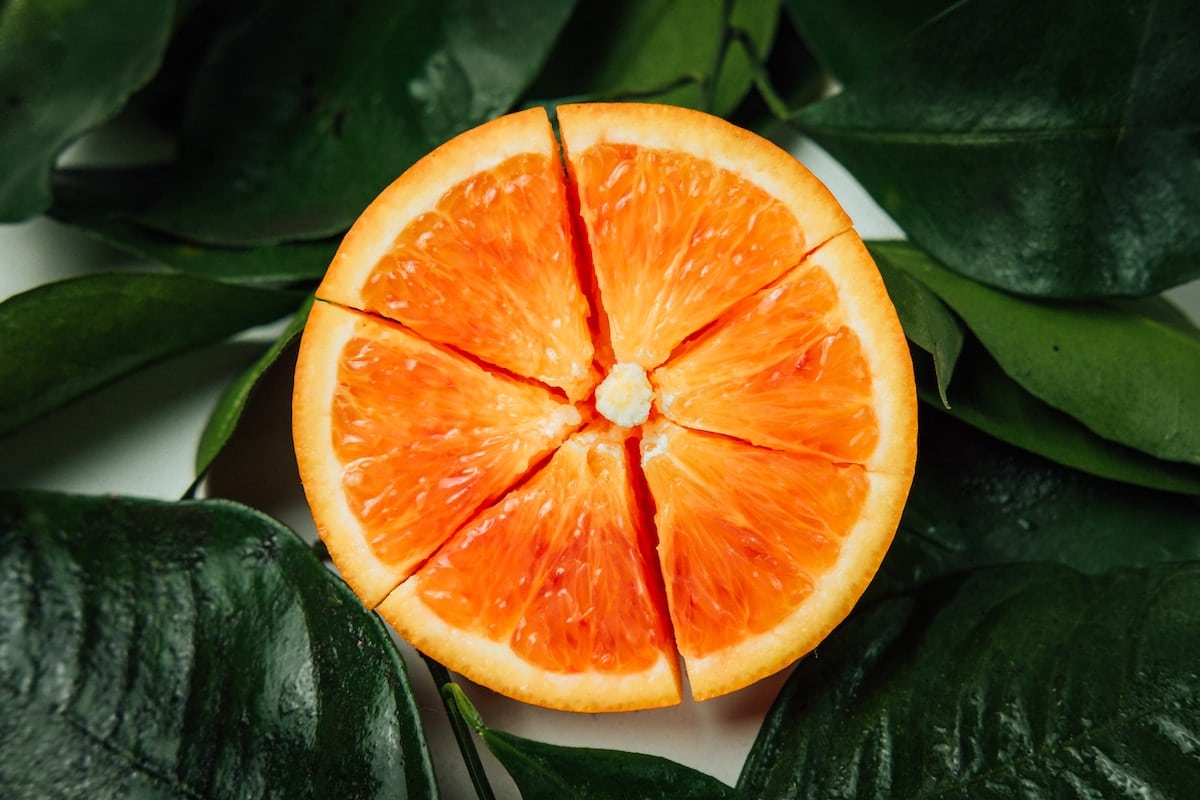
This past month, I reviewed a YouTuber named Kenzie Burke’s video about the Food Combining Diet, diving deep into the research (or lack thereof) and poking some serious holes in her theory. It got a lot of great attention, and lead to her removing her video from the platform, likely as a result of the obvious misinformation it contained. But I get that some of you want to see the science first hand, so I thought I would go a little more in depth in this blog.
What is the Food Combining Diet?
The food combining diet isn’t about what to eat or how much to eat. But rather, it emphasizes HOW you eat- particularly how you eat foods together (or apart). The food combining diet has its root in Ayurvedic practice, and features an extensive list of rules on which foods should be eaten together or on their own.
Here’s a list of these basic rules.
Food Combining Rules
Only eat fruit on an empty stomach
Don’t combine starches and proteins
Don’t combine starches with acidic foods
Don’t combine different types of protein
Only consume dairy products on an empty stomach, especially milk
Protein should not be mixed with fat
Sugar should only be eaten alone
Fruits and vegetables should be eaten separately
So What’s The Theory Behind Food Combining?
If you’re reading this and thinking, “WTF, WHY?! WHY can’t I have peanut butter on my toast? I’ve ALWAYS thought that was a reasonable, balanced thing to do?!” You’re not alone.
The theory behind food combing is that when we combine starches and protein we are putting too much strain on our digestive system. To use the PB and toast analogy, food combining proponents believe that when you eat fast digesting foods (like bread) and slow digesting foods (peanut butter), you’ll cause a “traffic jam” in your digestive tract. This peanut butter toast traffic jam will supposedly negatively affect your digestion, resulting in disease, toxic buildup, bloating, IBS and other forms of digestive stress. To prevent that, food combiners eat the peanut butter and toast separately.
Claims of the Food Combining Diet
So does strategically combining (or more realistically, separating) foods actually impact our health? Food combining supporters claim eating this way improves digestion, normalizes acidity levels, decreases toxins in the body, reduces bloating and of course- promotes weight loss. That’s a pretty big rap sheet. Is there legitimacy to any of these claims? Let’s take a closer look.
Food Combining Improves Digestion and Reduces Bloating & IBS

Theory Behind The Claim: Like I mentioned earlier, the goal behind food combining is to reduce the strain or work for your digestive system by only giving it a few foods to digest at a time. By doing this, food combiners claim your food will digest very quickly. However, does this give our digestive system a break, and does it need a break?
What the Evidence Says: One of the biggest flaws in the food combining movement is that they seem to ignore the very science-based principles of how our digestive system works. Unless there’s an underlying digestive issue, a healthy digestive system doesn’t get any kind of traffic jam. Each step in our digestive system, from our mouth to our anus (sorry for putting those words so close together), is carefully carried out by a variety of processes and they do a damn good job without any hiccups. That has nothing to do with the food we put in our body, and has more to do with our very experienced and efficient digestive system. Our intricate digestive system triggers the release of the appropriate enzymes to break down a variety of foods at once. It is made to multitask with not just one enzyme, but the right cocktail of enzymes for the job since our meals are almost ALWAYS a cocktail of macro and micronutrients. Let’s go back to our PB and toast analogy. Say you decide to just eat the peanut butter with a spoon (which, let’s be real, is also good). Like most foods, peanut butter contains all three macronutrients: fat, protein and carbohydrates. According to the food combining rules, you’d be breaking, like three rules, just by eating a single spoonful of peanut butter sans bread. Because of peanut butter, and quinoa, and legit everything, your body has lots of experience sending out the right enzymes and you are not giving it a head start or lessening the work by separating these foods.
This brings me to a more important question: do we need, or WANT, to fast track digestion?
Food is fuel, so if food “passes right through us” as our friend Ms. Burke suggests, you’ll end up with an empty tank pretty quickly. In an ideal scenario, food is meant to sustain us so we can use it later for exercise and even emergencies like if you enter starvation mode. Foods that tend to pass right through us (think simple sugars like candy) can cause a spike in our blood sugar levels which actually overwork our body, and leave us susceptible to overeating shortly after. This is why we always recommend combining fruit with a source of protein or fat to prevent those spikes (a suggestion that would be refuted on the food combining diet.)
Food Combining Improves Enzyme Function

Theory Behind The Claim: Since different enzymes require different pH ranges to function, food combiners believe if two foods require different pH levels, the body can’t properly digest both at the same time which leads to digestive distress. This is why food combiners often describe food groups as either acidic, neutral, or alkaline. The theory behind these foods is that if you eat too many acidic foods then you can alter the pH levels in your body and thus hinder the function of those enzymes.
What the Evidence Says: If you fell asleep during your high school chem class, here’s a brief refresher on enzymes. I briefly mentioned enzymes earlier, but we need to take a closer look because they’re the protagonist in this digestion story. Depending on the food, a variety of enzymes are released to help with digestion, each with their own optimal pH ranges for function. Here are some common ones:
Amylase = breaks down carbohydrates (4.6 – 7.0)
Protease = breaks down proteins (1.5 – 7.0)
Lipase = breaks down fats (4.0 – 8.0)
As you can see these are very wide ranges, and that’s because these enzymes exist throughout our body in a variety of different pH environments.
Now that you understand enzymes and their function, let’s refer back to those food combining claims.
Enzyme Claim #1: Our body can’t simultaneously digest foods that require different pH levels.
First of all, our enzymes work throughout our body, not just in one place, so this means that there are different pH levels throughout our body (see the optimal pH ranges above) and even given that, digestion is still possible. Lipase works in your stomach and small intestine, protease work from your stomach into your small intestine and finally amylase breaks down on starches in the mouth and small intestine. The lipase that works in your stomach requires a more acidic environment, while the lipase that works in your small intestine requires a more basic environment. The system that regulates the appropriate pH for each enzyme’s reaction is not based on the types of food you eat, but rather our amazing bodies!
pH Claim #2: Certain foods alter pH and enzyme function
The second point I want to make is that there is absolutely NO evidence that eating alkaline, acidic or neutral foods can suddenly change the pH of your digestive tract. Some evidence has found that the pH of certain foods may change the pH of your urine, which is why it may be helpful for people with kidney disease to pay attention to pH, but to date no evidence suggests it can change our body’s blood pH.
There are instances when the pH in our body changes, but our bodies are able to quickly find a way to correct that and normalize those levels in healthy individuals and return to homeostasis.
Want to know how? *puts her geek glasses on*
Well, your stomach lining contains cells that control the pH level. When your stomach’s acidity level changes, your body simply releases gastric acid to normalize your pH levels. If your small intestine’s pH changes, your body releases bicarbonate to neutralize the acid coming from your stomach. Even stevens!
Bottom line, folks: your digestive tract and the enzymes within it are smart cookies. Everything is very tightly controlled and regulated by your body and not by the food that you eat.
Food Combining Eliminates Toxic Buildup
Theory Behind This Claim: When we combine the wrong foods, certain foods don’t get properly digested and remain in our stomach or intestines undigested, leading to fermentation, gas, bloating and toxic buildup. Sounds pretty nasty, but is it true?
What the Evidence Says: Not so much. First of all, food doesn’t just sit in our stomach. Our stomach’s acidic environment lets very few things live in those stark conditions. Any food in our stomach starts to get broken down by enzymes and mixed in with our stomach acid before being pushed through our small intestines.
The fermentation they claim can happen, but only in our large intestines. Our large intestines house a huge amount of good bacteria and you will find some undigested foods there like fibre, for example. However, the undigested fibre left behind doesn’t lead to a toxic buildup, it ferments, releasing gas and good-for-you byproducts like short chain fatty acids. These fatty acids can actually do wonders for our health like reducing our risk of cardiovascular disease by improving our blood sugar control and reducing inflammation. The bottom line is that food doesn’t hang out in our stomach for long in a healthy person, and if you are having delayed gastric emptying, it’s time to speak to a doc.
Food Combining Promotes Weight Loss
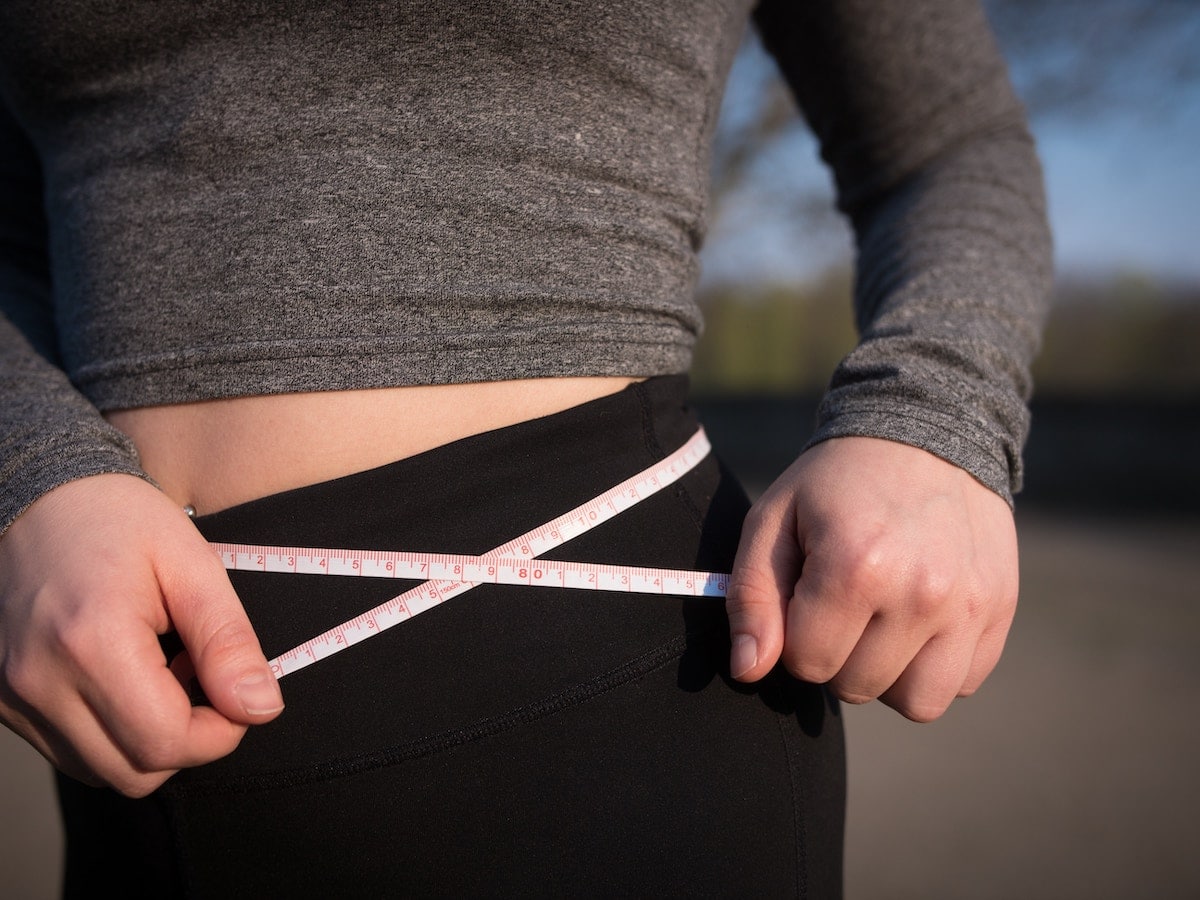
Theory Behind This Claim: That toxic buildup that we just mentioned in the last claim is said to lead to all sorts of problems including gas, bloating and weight gain. The theory here is that if you combine the right foods, your digestion improves, there are no leftover “rotting” foods in your stomach and you will inevitably lose weight.
What the Evidence Says: The research on food combining and weight loss is pretty lacking. I mean the research on food combining in general is hella scarce! What we did find in our research was one single itty bitty study that looked at food combining and weight loss and the results don’t really tell us anything we didn’t already know. Let me tell you what I mean by that. In a 2000 study, participants were separated into either a food combining diet group or a regular balanced diet. Both diets were defined as low calorie diets (when I say low I mean LOW, like around 1,100 calories/day). I would call that a starvation diet by my standards and I’m honestly surprised this got past ethics. But anyway, unsurprisingly, both groups lost around 13 to 18 pounds. Researchers concluded that the food combining diet offered no benefit over the balanced diet group, and the calorie restriction was the cause of the weight loss, not the food combining component. Shocker. Given this was a short term study (obvs because WHO WOULD DO THIS FOR LONG), it is also likely that they would have gained all that weight back and then some, because that’s what the research tells us happens with severe restriction. The moral of the story is that restricting calories may lead to modest weight loss, that will likely not last, and that food combining does not play a role in that.
When Food Combining Works
So I hope we’ve made it clear that the food combining diet is BS. But there are instances when combining certain foods can actually improve their nutrition.
Vitamin C & Iron Absorption
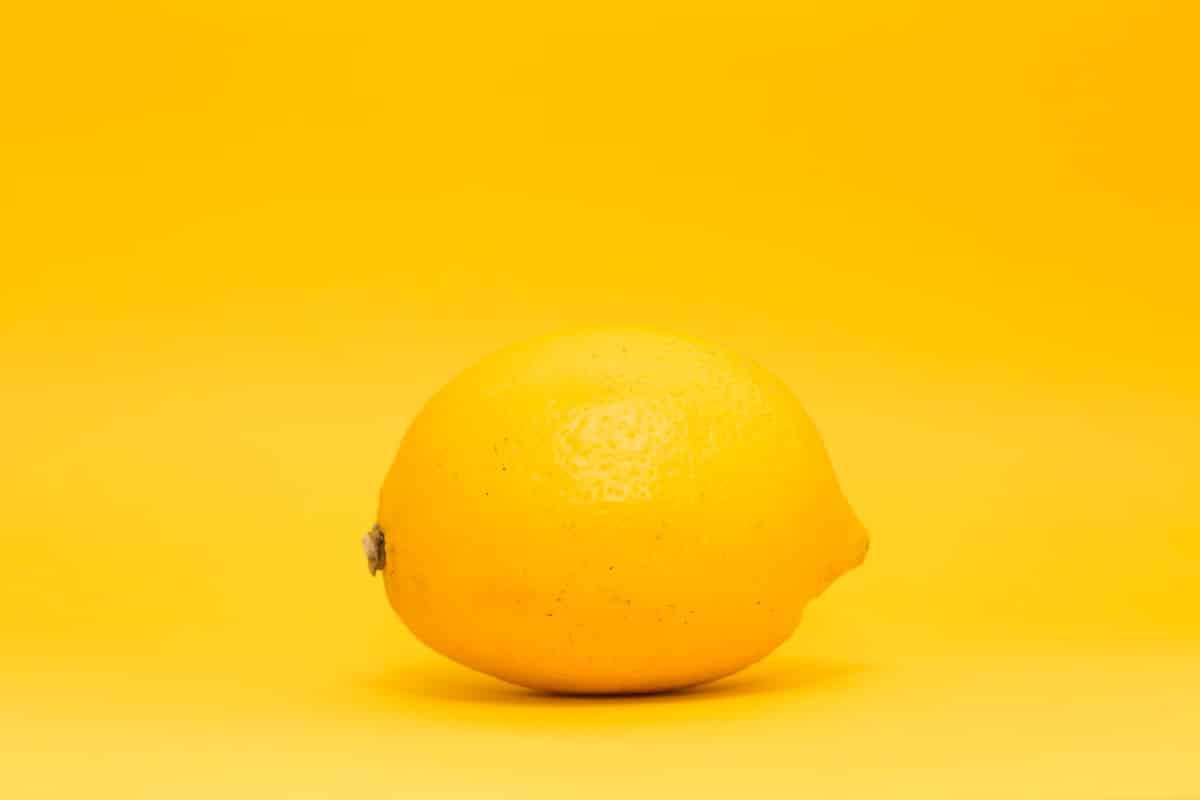
Iron comes in two forms: heme and non heme. Heme iron is more easily absorbed, and non heme is not, so to increase the absorption of plant-based non heme iron, it is recommended to combine non heme iron sources (like beans, peas and lentils) with vitamin C rich foods (citrus fruits, bell peppers and tomatoes). This would be REALLY important information for Kenzie and her plant based followers, but sadly this would be prohibited by food combing rules.
Fat Soluble Vitamins and Fat
Fat soluble vitamins like A,D,E ,and K play a key role in our health and they are best consumed with fat in order to be properly absorbed by the body. For example, research suggests that carotenoid rich foods like red, orange and dark green vegetables are best combined with oils or fat to reap the benefits of these vitamins. This is why putting salad dressing on our veggies is actually really important! Likewise, serving your vitamin A rich fruit with some sort of fat also helps reap the benefits. Think mango with cashews, or watermelon with avocado- all yummy option! This would again negate the food combining guidelines, but it would be a shame not to squeeze all that nutrition out of your produce.
Carbohydrates and Protein or Fat
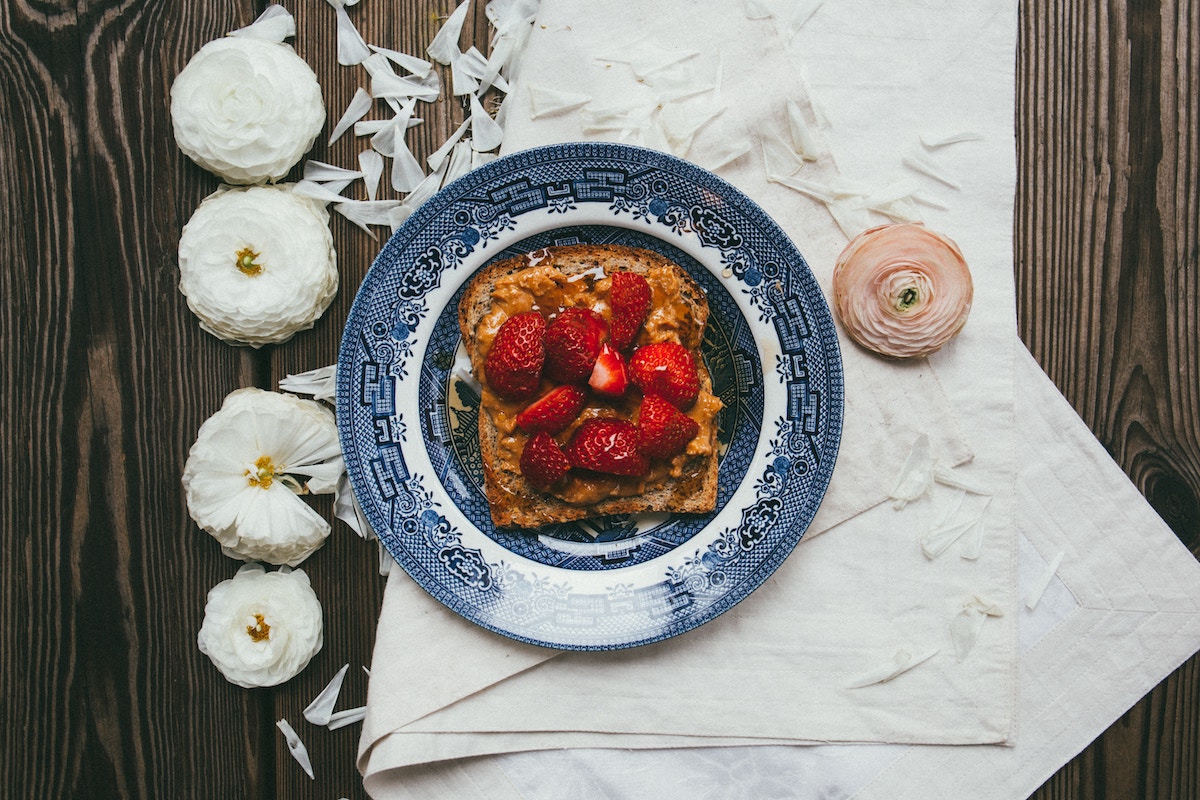
Contrary to the food combining philosophy, combining carbohydrates and protein or fat have a lot of important benefits. In sports nutrition for example, evidence has found that consuming carbs and protein together after a workout can help to speed up muscle recover and replenish glycogen stores that were depleted during exercise.
We also recommend combing carbohydrates (like fruit) with fat or protein for blood sugar control. In fact, one study found that people’s blood sugar levels were lowered when they consumed a potato with lentils compared to potato alone in healthy individuals. Again this wouldn’t be allowed if you’re following those rules.
Protein Combining
When it comes to protein, not all proteins you eat are created equal. Complete proteins provide us with all the nine essential amino acids our bodies need to function optimally. These types of protein are animal-based and include meat, poultry, fish, milk, eggs and cheese. Incomplete proteins are missing one or more of the essential amino acids, and include vegetables, grains, legumes and nuts. We used to think that in order to get all of the essential amino acids from plant based protein, that we needed to combine these incomplete sources together to form a complete version (i.e. beans and rice). However, we now know that it’s not necessary to combine these incomplete proteins at the same time, but just rather, to ensure you’re getting a variety of these proteins throughout the day and week.
Bottom Line on the Food Combining Diet for Weight Loss & Digestion
Sorry avid food combiners, based on the available research and the many hours I’ve spent in a biology and chemistry lab, and there is just no evidence to suggest food combining cures digestive woes or even leads to weight loss. Granted, there are occasions when you can benefit nutritionally when combining certain foods, but this has nothing to do with the kooky rules set out by the food combining diet. The last thing we need in the health and wellness space is more bogus rules. Listen to your body’s cues and combine foods the way that is satisfying and enjoyable to you. That’s as close to a “rule” as you’ll ever need.
Become an Abbey’s Kitchen Subscriber
If you liked this post, you may like:
- Should You Be Eating Your Placenta?
- Does the Boy Diet and Girl Diet for Sex Selection Work?
- Is the Sirtfood Diet the Key To Successful Weight Loss?
- The Alkaline Diet Review | Does pH Balance Help You Lose Weight?
Contribution By:
Sofia Tsalamlal, RD, MHSc Nutrition Communication
Updated on January 14th, 2023

Abbey Sharp is a Registered Dietitian (RD), regulated by the Ontario College of Dietitians. She is a mom, YouTuber, Blogger, award winning cookbook author, media coach specializing in food and nutrition influencers, and a frequent contributor to national publications like Healthline and on national broadcast TV shows.
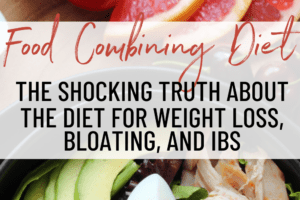
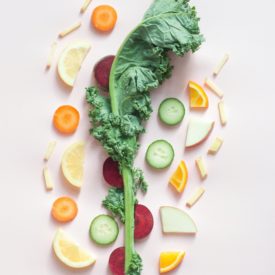
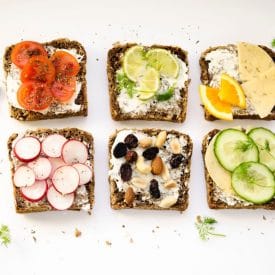


Jon says
The author of this article didn’t cite a single source to any of her claims, yet there are numerous studies showing the definitive and objective benefits of eating certain foods in groups where they are most easily digestible.
What is the benefit that the author derives from misleading people? Just to tell everyone that they can shove any combination of foods down their throats without consequence?
To quote the article: “Listen to your body’s cues and combine foods the way that is satisfying and enjoyable to you. That’s as close to a “rule” as you’ll ever need.”
If that were true, there wouldn’t be an epidemic of metabolic disease worldwide. People regularly combine foods that are satisfying and enjoyable to them, and then later have mild to severe symptoms of bloating, diarrhea, gas, constipation, foul smelling bowels, joint pain, bad breath, and more.
I strongly suggest anyone reading this to do some independent research and read the actual scientific studies about how our bodies digest foods, which parts of the digestive tract are responsible for digesting which foods, and then come to your own conclusion. I encourage the author to retract such statements that lead people to believe they can eat whatever they want, however they want, with total abandon and disregard for consequences.
If you don’t believe me, here’s an easy test:
1) First, eat 4+ ounces of moderately fatty steak such as ribeye.
2) Then several slices of bread with butter and a large amount of melted cheese on it.
3) Now eat a small salad with many crunchy, cruciferous vegetables such as cabbage, broccoli, and kale. Add some raw onions and whole roasted garlic cloves and, if desired, your favorite salad dressing.
4) Finally eat a large bowl of grapes at the very end.
5) Wait a few hours and let’s see how you feel!
Do you see what I did here? I mixed all the types of food groups together in a satisfying combination – fat, starch, sugar, protein, dairy and several moderate to high FODMAP foods such garlic, onion, and cabbage.
I’m certain that you will be experiencing an awful, possibly the worst, case of indigestion bloating, gas, and constipation that you’ve ever had!
Food combination matters for your digestion.
Rari says
Fixed ibs lost 20lbs in 2 months . Felt amazing . It just regulates your food portions. I never felt deprived.
Linda says
Hi Abbey,
I appreciate you for sharing your knowledge so generously! Will you please comment on the buzz that’s being promoted on keto being the way to go for mitochondrial health (some are saying the protein increases mitochondria in the cell). The same people who promote this thinking also say that (healthy) carbs cause dementia, (especially when combined with fat…and carbs with protein are said to be a bad combo, too). Some of the people promoting this thinking are David Perlmutter, Dale Bredesen, etc. There is so much confusion in the diet world – thank you for sorting it out for us!
Abbey Sharp says
I’ll add it on the list!
Anonymous says
Well, I been a big guy all my life. I’m 47 now. Always staggered between 220 and 280 pounds. I have been on all the diets. All the non diets. I know one thing for sure! When I use proper food combining, I feel the best. My weight goes down, my blood drawn numbers look good to all the doctors.
Vicki says
I followed this years ago for a while. The main part that stuck out to me is that my bowel movements were very regular and clean (nothing to wipe) and my stool did not smell. That leads me to believe that there is a delay in digestion of one type of food over another and that the steak I ate was rotting while waiting to digest. And the 8 hours of eating, leaving the rest of the 16 hours for assimilation and elimination was a good system to make sure I didn’t overeat. Hence my finding your blog today – I am thinking of following the diet again. It certainly doesn’t do any harm and obviously sets a good routine up that benefits your health and some people are comfortable with. I do intend to lose weight, but the other benefits are worthwhile, as well. I am not doubting your science and I don’t know the video you originally responded to, but the book itself is what I followed.
Abbey Sharp says
I’m glad that it worked for you!
Keke says
The food combining is a good thing think of digestive enzymes as soaps you don’t mix dish and body wash and also aside from fruits and liquids being solo EVERYTHING ELSE is supposed to be mixed with veggies to help digestion so not sure where she got her info but stay with it it definitely helps the bowels and people don’t realize if it’s sticky to wipe it’s sticky inside you too
Katie says
So just a few questions. the study that you mentioned was on weightloss. Has there been studies on food combining and blood glucose? gut permeability? fatty liver? I am talking more health related studies. I agree that study was fairly useless and it is unfortunate that our culture places such emphasis on weight over health. I would be curious to see studies based on gut health, hormones, ect. although funding for such studies is scarce.
Another thing you mentioned is “Unless there’s an underlying digestive issue.” what would qualify as a digestive issue? are we talking dysbiosis? crohns? IBS?
and how do you factor in genetics? I know some individuals who don’t produce proper amounts of enzymes to break down animal protein? I mean I feel as though science and education is trying to help individuals alter their belief and relationship with food to a more bio-individual approach and away from these hard,fast restrictive diets…. anyways sorry for my squirrely thoughts. I will have to peruse over your article again since I know there were more.
Abbey Sharp says
Thank you for your questions! I’ll have to get back to you on that 🙂
Papyracious says
I can’t quite find any ‘Shocking Truth’ in this article – Just a very biased diatribe against food combining.
Abbey Sharp says
Thanks for your feedback.
Nitte says
I’ve an issue. I am on SSRI. Point is I’m mainly high fat/low carb but SSRI I think isn’t working well without insuline and the it’s effect on l-tryptophan ..->yaddayadda->hydroxy-l- trypthophan ->serotinin and so on having preloaded protein before. This is to keep weight. Well, a thing is I take some spoon of highfat yoghurt once in a while. However if I pour some sugar over it I flip and empty whole buckets directly. Could use it as a partytrick. So now you see why someone may have problems with combining carbs and fat. I am unsure what happens, if fat is delaying the satiety signal and if it being related to insuline?
Raf says
Does good combining help with pcos . Any idea
Abbey Sharp says
I don’t believe there’s any research to support food combining for PCOS. But I have a whole blog post about PCOS diet recommendations which you can read right here https://www.abbeyskitchen.com/pcos-diet-supplement-recommendations/
Marilyn says
You are shaming a way of eating that ultimately promotes high levels of fruits and vegetables and no processed foods while simultaneously allowing advertisements for Jimmy Dean sausage sandwiches and toxic pharmaceuticals on the side of your page.
Abbey Sharp says
Hi Marilyn. I’m glad the food combining diet works for you. And I have no control over the advertisements that appear on my page.
Diana Davis says
If you look into the originator of food combining, Dr. Norman Walker, btw, lived to be way over 100 years old, practiced food combining and vegetarianism. His first book published the late 20’s, possibly 1930. This, of course, was way before doctors and dieticians came into play to assist the American society into further health doom.
I think such practices, including keto, work because you are not dumbing starches and proteins together and eating minimal fruits, which in itself is food combining. I do find some of the ealier food combining practices to be very low in fat, vegan being the worst for your health in general.
Lynn Goldhammer says
I did this diet years ago and had success with it. It was easier to follow than most, and I ate a lot of fruits and veggies with it. It was probably the easiest diets I ever followed because I could eat anything, just had to time it right. One of the hardest parts of dieting is the deprivation of cutting things out that I enjoy, like pasta. Never had to with this diet.
The book I got to follow it was called “Fit for Life”. I’d recommend looking beyond just this one review, especially as it sounds like the author never tried it, just reviewed it.
Abbey Sharp says
Thats great that you had success with food combining! The best diet is definitely one you can sustain.
sonja says
Hi, in what respect did this work for you? Weightloss, IBS symptoms?
papyraceous says
The author didn’t review it, but wrote a completely biased attack on it using a deliberately sensational title (The shocking Truth’ when in fact no shocking truth was revealed at all. I think this author discredits herself in the article and shows pure bias and no balance or measure whatsoever. Quite astonishing.
Megg says
Hello, have you seen the video Frank Tufano did about you on YouTube? I hope you will do a reaction to this and defend yourself.
Abbey Sharp says
Hi no I havent Thanks for letting me know.
Agatha Heston-Blum says
There’s a sidebar (on the left side of the screen) that covers up part of the text on this site. I think things would be more readable if you moved that since the same buttons are also on the bottom of the screen (like the pin/FB share etc buttons)
Abbey Sharp says
Thank you for letting me know! Will make that change
Angela says
I had never heard of this diet before! It does sound like BS to me too!!
Abbey Sharp says
totally
Pat Dwyer says
I followed this
way of eating
May 2010 to August 2011.
I lost 60 pounds.
Abbey Sharp says
It’s great to hear it worked for you!
Papyracious says
Well if you have never heard of it and have decided that it is BS because of one biased blog report written by someone that sells diet plans for a different diet I am sorry for you. You should look further and wider for a balanced view.
Leslie says
I’m so glad that you speak the truth on matters such as this. You really know your stuff. Appreciate your wisdom!
Abbey Sharp says
Thanks so much!
Papyracesous says
What makes you think that this is the truth? Why not try some wider reading. This article seems to say that you can stuff anything down your gullet and it won’t make any difference. I can’t see the science here or the proof. The article might start by saying that whilst the author does not believe that the FC diet is scientifically proven, a diet that promotes avoiding processed foods, eating as many uncooked foods (raw vegetables and fruits) as possible and that obliges you to glance out the carbs and proteins you eat cannot possibly be bad for you. But I suppose that wouldn’t sell what she is promoting ?
Deborah Brooks says
Well I am glad that I do not have stomach issues! This is pretty much the opposite of how I usually eat foods. Thanks for the info
Abbey Sharp says
ha right!